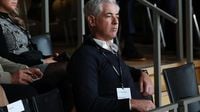Billionaire hedge fund manager Bill Ackman, a prominent supporter of President Donald Trump, has issued a stark warning regarding the potential fallout from the administration's recent tariff policies. In a lengthy post on X, Ackman called for a 90-day halt to the escalating trade war, which he believes could lead the U.S. into an "economic nuclear winter" and severely impact business confidence.
"Business is a confidence game. The president is losing the confidence of business leaders globally," Ackman stated, emphasizing the negative repercussions for the nation and the millions who supported Trump, particularly low-income consumers already facing economic strain.
Last week, President Trump announced sweeping tariffs, including a 25% tax on all foreign-made automobiles, a 10% minimum baseline tariff on imports, and new reciprocal tariffs targeting countries that impose levies on American goods. "Our country and its taxpayers have been ripped off for more than 50 years," Trump declared from the White House Rose Garden, asserting that these measures would rectify longstanding trade imbalances.
However, economists quickly criticized the administration's approach, describing the formula used to calculate tariffs as overly simplistic and potentially damaging. Ackman echoed these concerns, arguing that by imposing massive and disproportionate tariffs on both allies and adversaries, the U.S. risks instigating a global economic conflict that could undermine its reputation as a reliable trading partner.
"By placing massive and disproportionate tariffs on our friends and our enemies alike and thereby launching a global economic war against the whole world at once, we are in the process of destroying confidence in our country as a trading partner, as a place to do business, and as a market to invest capital," he warned.
As markets reacted to the tariff announcements, stocks experienced significant declines, with the S&P 500 futures sinking 5.3% in premarket trading on Sunday, April 6, 2025. The tech-heavy Nasdaq fell by 5.4%, and the Dow Jones Industrial Average futures dropped by 4.3%. This marked the worst week for stocks since the height of the coronavirus pandemic, with investors expressing concerns about the implications of the tariffs.
In the wake of these developments, Bitcoin (BTC) dropped to $77,300 on April 7, 2025, down 7.6% in just 24 hours, erasing nearly $70 billion in market capitalization. Ethereum (ETH) also suffered, slipping to $1,555, down 14% in a single day, according to CoinGecko data. Ackman noted that the cryptocurrency market is particularly vulnerable to manipulation and may face significant challenges as investor confidence wanes.
Tracy Jin, COO of MEXC Exchange, commented on the current state of the market, stating, "The market is easily manipulated in its current state. This carries the threat of new disappointments… and this will call into question the status of Bitcoin as a safe haven asset, which may lead to an even sharper outflow of funds from the ETF." Jin predicts that Bitcoin could drop to the "$52,000–$56,000 range" by summer, while Ethereum may face even steeper declines.
Ackman's plea for a 90-day moratorium on the tariffs comes amid fears that a prolonged trade war could lead to mass layoffs and a halt in investments. "If we continue down this path, we are heading for a self-induced economic winter. May cooler heads prevail," he warned. He emphasized that the adverse effects of the tariffs would not only impact large corporations but also small and medium-sized businesses, which could struggle to absorb the increased costs.
The billionaire investor, who previously endorsed Trump during the 2024 presidential election, underscored the importance of trust in business relationships. He cautioned that without a pause in the tariff escalation, the U.S. could find itself engaged in an "economic nuclear war" with every nation, leading to a significant decline in consumer spending and investment.
As the markets continue to react negatively, Ackman's comments reflect a growing sentiment among business leaders that the current trade policies may do more harm than good. "What CEO and what board of directors will be comfortable making large, long-term, economic commitments in our country in the middle of an economic nuclear war?" he questioned, highlighting the uncertainty that these policies have created.
Despite the turmoil, President Trump remains defiant, asserting that his tariff policies "will never change" and claiming that they will ultimately benefit the U.S. economy. In his own remarks, he stated, "Some day people will realize that tariffs, for the United States of America, are a very beautiful thing!" This steadfastness in the face of mounting criticism has left many investors and business leaders apprehensive about the future.
As the situation unfolds, the impact of these tariffs on the broader economy remains to be seen. Ackman’s warnings serve as a crucial reminder of the delicate balance between protecting domestic interests and maintaining global trade relationships. The coming weeks will be critical as the administration navigates these turbulent waters, and the decisions made could have lasting repercussions for the U.S. economy and its standing in the international market.








